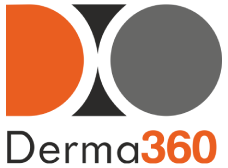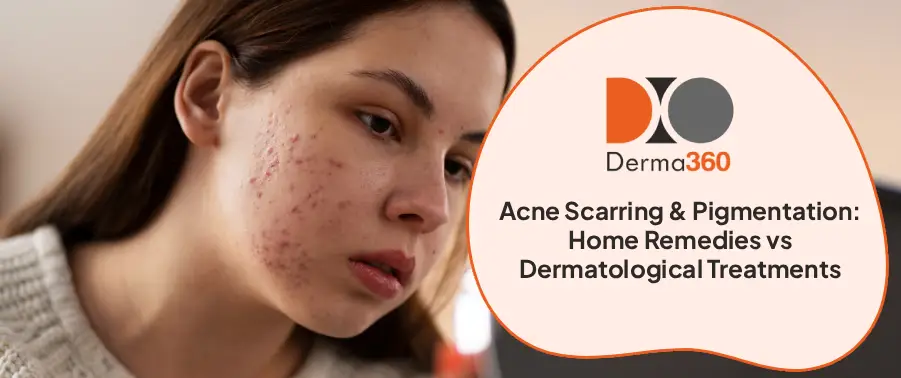Subtotal ₹ 0
Acne is the most prevalent skin condition at any age, and the breakouts are temporary, but the damage they cause is permanent. The question that is in everyone’s mind is whether home remedies are effective or whether people need dermatological treatment.
Specifically, knowing what the difference is between scarring and pigmentation and what can be done about it will enable you to make a move.
Understanding the Difference
Before discussing any treatment, it is necessary to differentiate between acne scars and pigmentation:
- Acne Scars: They are permanent changes in the texture of skin that occur when the deeper layers of the skin are destroyed.
- Post-Inflammatory Pigmentation (PIH): These are dark marks or spots that remain following the healing of an acne lesion. Pigmentation is temporary, as compared to scars, but it may take weeks and possibly months before it begins to fade away.
Home remedies for acne scars and pigmentation
One of the things people might turn to first is home treatment, given that it’s accessible, inexpensive, and (if used properly) generally safe.
Honey
Honey has antibacterial properties and promotes healing, which can aid the skin in healing quickly and reduce the intensity of scars.
Turmeric
Turmeric has anti-inflammatory properties and may reduce skin pigmentation and redness.
Lemon Juice (with caution)
Lemon juice is a natural bleaching agent and can be applied to dark spots to lighten them.
Green Tea Extract
Green tea extracts or cooled green tea bags, when applied to the skin, can help calm the skin to reduce mild pigmentation.
Limitations of Home Remedies:
These natural remedies can increase light pigmentation and assist with healing; however, they cannot be successful in correcting moderate to severe scarring. They take time to work, and regularity is necessary, but deep textural scars require medical treatment.
Dermatological Treatments for Acne Scarring and Pigmentation
For more visible or long-term acne scars and pigmentation, dermatologist treatments are highly effective.
Microdermabrasion and Dermabrasion
All these processes exfoliate and rejuvenate the skin by shedding the skin layers and may improve skin texture and diminish pigmentation spots.
Microneedling
It is a form of treatment that uses very small needles that puncture the skin, stimulating the production of collagen. It minimizes the visibility of acne marks and gets rid of rough skin texture.
Laser Therapy
Laser is used to address pigmentation and scar tissue by resurfacing or encouraging collagen to grow in the skin.
Fillers
In deep and depressed scars, dermal fillers can be used to offer the same effect of improving the appearance by lifting the skin and correcting the irregularities.
Prescription Creams
Active creams may be prescribed by dermatologists and help exfoliate the skin much faster and decrease pigmentation.
Advantages of Professional Treatments:
Home remedies are not as quick and efficient as dermatological procedures. They can treat not only the surface pigmentation, but also deep scarring, with noticeable results in a shorter number of sessions. Yet, they can entail downtime, an increase in expenses, and professional supervision.
Choosing the Best Strategy
Your choice to use home treatment or dermatology-based treatment will depend on the severity of your condition, your budget, and your goals. Self-prescription and home remedies can be sufficient to deal with light pigmentation or early acne scars, including items with niacinamide or vitamin C.
By impacting not only your skin with acne scars and pigmentation, but also stealing your confidence. Home remedies may provide a slight relief and proceed at a slow pace but when it comes to handling more severe issues such as dermatological treatment is aimed and lasting. In many cases, the solution is in-between the two i.e., the good routine at home and professional treatments when needed.



Comments are closed